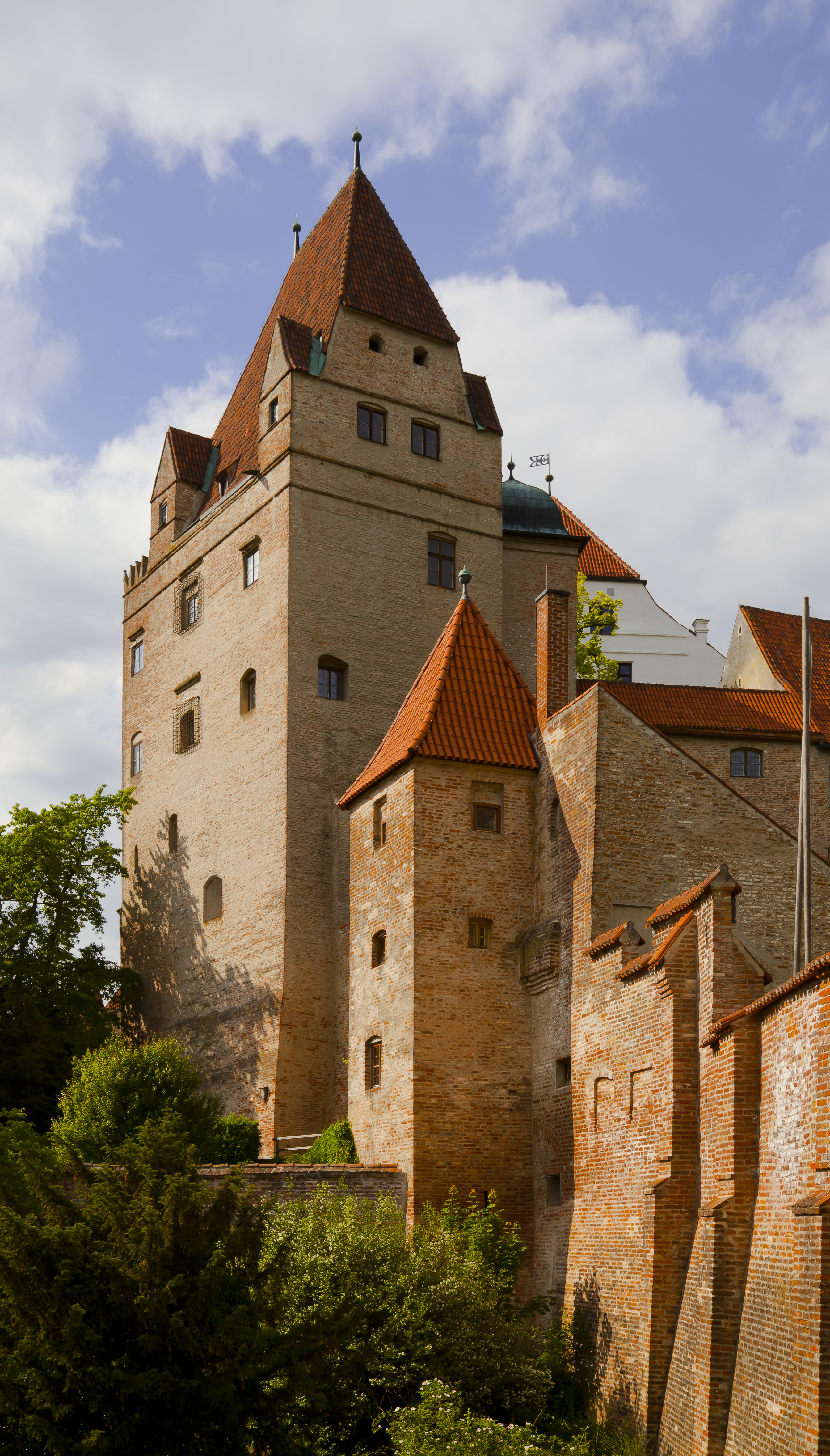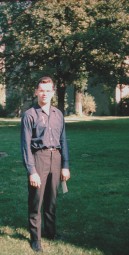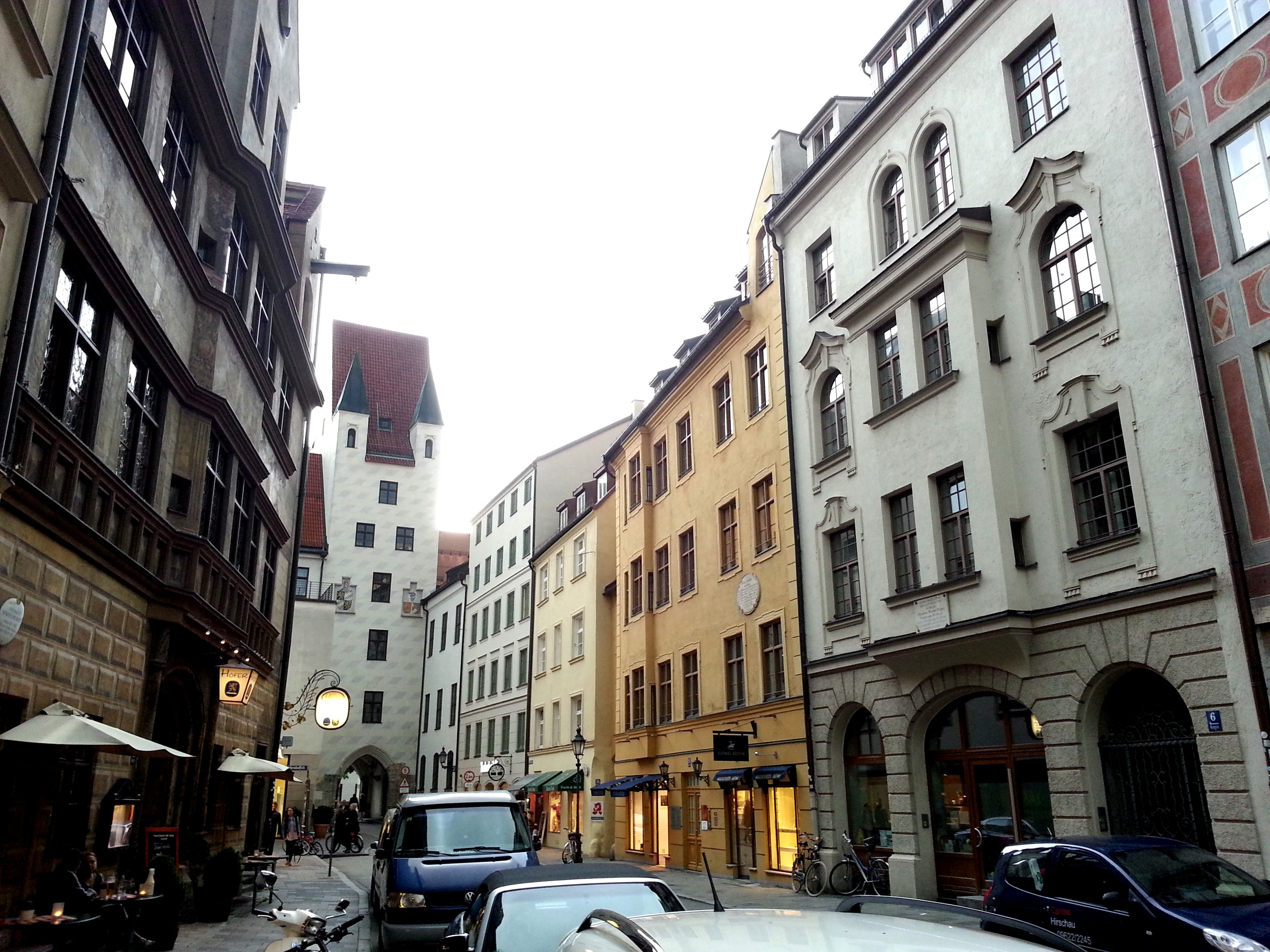Rally Prop
In the spring of 1965 I met a young woman at a
German-American
friendship event. These events were organized by the U.S.
Army to improve
relations between American soldiers area civilians. They
were mostly attended by officers and senior NCOs. The
local guests were often community leaders and other people
of some standing. Lower ranking GIs, though invited to
such
events, seldom attended. I was only there because I had
been detailed take pictures and using a camera was part of
my day-job. (Long story. Don't ask.) 
The young lady was the daughter of the headmaster of a nearby Gymnasium, a German academic high school. Her name was Gretchen, but she introduced herself to me as Greta. I was impressed, not just because she looked great and seemed interested in me, but because her English was excellent. Also she seemed somewhat impressed that a GI could speak German, all be it, very imperfectly.
She and I talked about the local sights in Landshut and in the course of our conversation she offered to be a local tour guide some day if I’d be interested. Not to put too fine of a point on it: I was a GI and she was a woman. I was interested. Our first outing was the following Sunday afternoon when she and I and two of her friends took a walking tour of the “Hofgarten,” a park near the local castle. Over the course of that spring we met often – always on Saturday or Sunday afternoon – as she helped me learn conversational German in the local “bairish” dialect as well as standard “high” German. We also talked about a wide range of topics from the role of Catholic vs. Lutheran faiths in Germany to the status of race relations in the United States. I believe it is safe to say that her intellectual insight was greater than mine and her greater knowledge had a long-lasting impact, even influencing my thinking to this day.
On one occasion, late in the summer of '65, she invited me to an event that was to take place in Munich on a Saturday afternoon. The event, turned out to be an anti-Vietnam war rally that was attended by thousands in the Marienplatz plaza in central Munich. Organizers had set up large displays of photographs from Vietnam that included many troubling and graphic images. The event was well organized with a street band, a stage and notable anti-war speakers. Even in a crowd that large, I stood out as an American GI, and many of the people there warmly greeted me; and thanked me for being there and taking a stand against the war.

“MPs” is all Greta said. The men would have reached us had it not been for a small group of Germans who congregated in their path and slowed their pace. By the time we cleared the plaza and ducked down a side street, the men were about a block behind us, walking very fast and obviously trying to catch up without actually running.
Toward the end of the
street the four of us turned into a Weinstube
then down a narrow flight of steps. It was a busy place
with mostly
young people standing and smoking and talking loudly. We
quickly
pushed through the crowd to across the room and take cover
beyond a small archway
near the bar. There was no door, just a sixties-style
hanging-bead curtain covering
the opening. In a few seconds the two men that had been
following us entered the Stube and came
down the stairs. As had happened in the
plaza, the people in the Stube were standing
shoulder-to-shoulder and closed in on the men making it
difficult for them to cross the floor to where we stood.
At that
point, Greta stepped out from the doorway, looked directly
at the men
and with raised, out-stretched arm gave them the
middle-finger salute. She and I then left the building
through a back stairway. Within a
minute we were in a taxi off to the Bahnhof and I
was on the
next train back to Landshut. 
Since then I’ve often wondered how my life might have been different had those two men actually caught up to me. At the time, I had a very high security clearance because, although I was officially listed as a public information specialist, my real job was part of a team that surveyed potential guided missile sites. At the very least, if caught, I would have been given an “Article 15”, lost my security clearance and probably have been sent to Vietnam.
The truth be told, I wasn’t particularly interested in the Vietnam War in 1966. That epiphany came a year later when LBJ started building up forces in Vietnam and there was the distinct possibility that I myself might become on of those tourists. Once I recognized the risk, the Vietnam War became personal.
Until then, I was neither for nor against the war as a political issue, even though most of the troops who rotated out of Germany would end up going to Vietnam for their last 13 months of service. My feelings about Vietnam didn’t go much beyond the fact that I didn’t want to be one of those soldiers. I needn’t have worried because I had a high security clearance and it was unlikely that I would be sent there.
In point of fact, the only reason I was at that rally was because I wanted to be near the young and pretty Greta. There was nothing political or moral about it. And, to be honest, I not believe my intentions were noble.
I remained friends with Greta for some time after that but it was always a platonic friendship that would never grow beyond casual. You see, in the eyes of her family, and possibly her as well, I as a lowly GI was beneath her class. At the time I was too young and too American and too naive to understand that in Germany class distinctions mattered. I do not know what became of Greta, however I suspect that after we lost touch she went on to a university and perhaps graduated in some academic or professional field.
In the end I came to understand that I was just a prop at that rally so the German organizers could say: “See, even American GIs are against this war.” Little could they know how, later in 1968, true that would become.